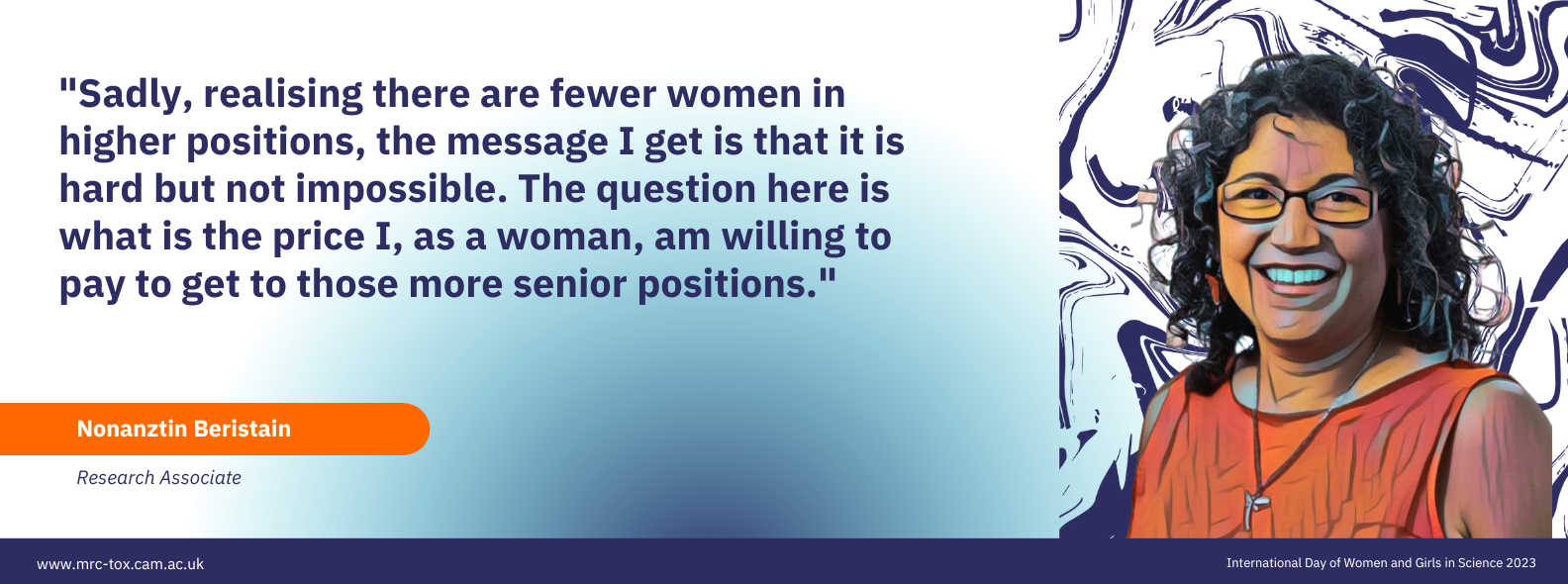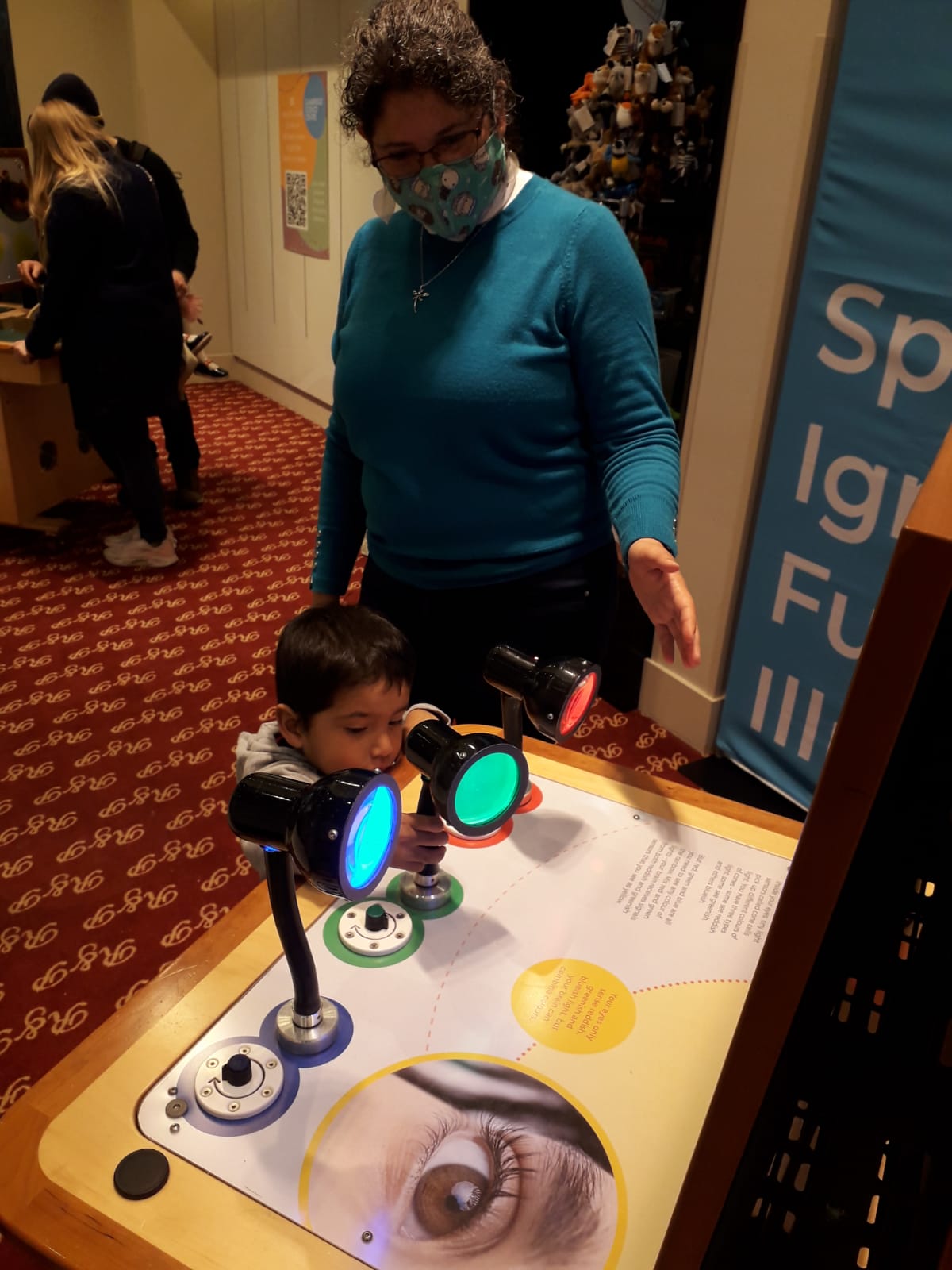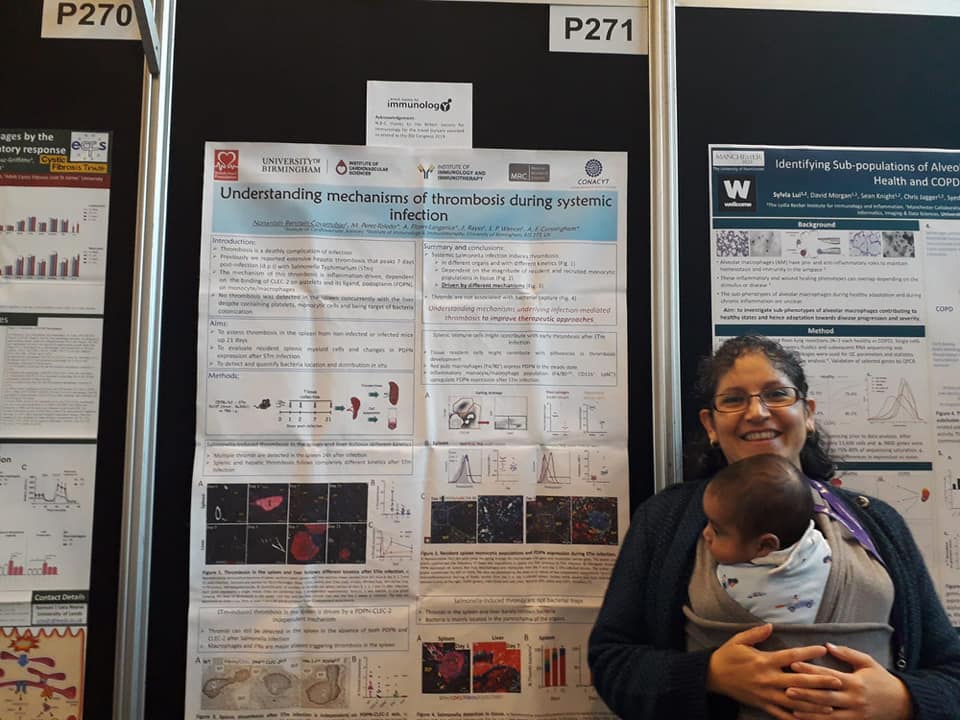To mark International Day of Women and Girls in Science 2023, we are sharing profiles of some of the women from the MRC Toxicology Unit highlighting their careers, experiences, passions and more. Today we want to introduce you to Noni.
Who are you and what is your role?
My name is Nonantzin Beristain, better known as Noni. I'm a Research Associate in the Patil lab at the MRC Tox Unit. I am investigating how pollutants found in food impact on the biology of our cells.
What does a typical day look like for you?
A typical day for me starts early with a morning routine that includes preparing and taking my three-year old to nursery, followed by a 20-minute cycle to the Unit. Once in the office, I go to the tissue culture (TC) room and have a look at my cells under the microscope to make sure they're ready for my experiment. I will get my workspace ready and warm our cell culture media - essentially the cell's 'food'. While that is happening, I will have a cup of coffee whilst reviewing my emails before starting on my experiment which can take anywhere between one and four hours depending on which one I'm doing. After the lab jobs are done and I've had some lunch, I focus on things that can be done at my desk like analysing data, writing reports and abstracts, making presentations etc. I leave the Unit in time to pick up my son and get home to a standard evening routine of dinner and quality family time.
When did you decide to become a scientist?
I've always been curious about biology and medicine, but I wasn't aware of the possibility of becoming a scientist until I attended university. When I was a second year undergraduate med student working as a volunteer in a cell biology research lab, I decided that a career in science was for me.
What have been the biggest challenges you have faced being a woman in science?
Overcoming unconscious bias, even by own. Being excluded from projects that require a lot of work and dedication because it was assumed that I won't want or have the time because I have parental responsibilities - keeping in mind that usually these people also have parental responsibilities but probably do not share them equally with their partners.
Ignoring people saying that women should be at home and not in the lab/office. I find this so contradictory when I look around and find there are so many women working in the lab. Sadly, realising there are fewer women in higher positions, the message I get is that it is hard but not impossible. The question here is what is the price I, as a woman, am willing to pay to get to those more senior positions.
What other things are you passionate about?
I love dancing to Latin music and enjoy a Zumba class to relax. I enjoy having creative homemade projects such as transforming a cardboard box into a playhouse, making Christmas decoration out of pinecones and glitter, or a costume for my son made from reused packaging paper. And of course, playing with my son, travelling with my family and watching movies.
What do you love most about working in science?
Finding the unexpected. Those times when you are looking for something but get a result that makes you think you did something wrong, repeating it, all to find out that what you have found is what it is and now you have to find a way to explain it. Science doesn't lie, we just need to work out what it is saying.
What advice would you share with other women in science or girls interested in getting into science?
Be persistent, tolerant, resilient and always respectful of others, but especially of yourself, your values and your beliefs.




